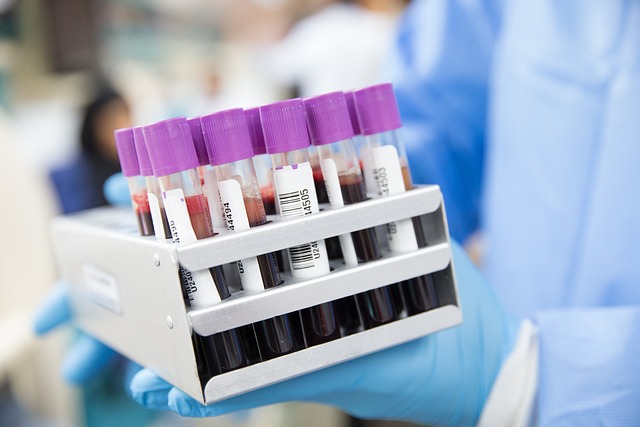Vitamin B12 deficiency is a growing concern in the UK, impacting various demographics and leading to fatigue, memory loss, and cognitive issues. The UK Vitamin B12 Blood Test offers a simple and effective method for early diagnosis, crucial for preventing long-term health complications. Accessible through healthcare providers, GPs, or pharmacies, the test involves taking a blood sample, which is analyzed within days, revealing deficiency levels. Results guide tailored treatments, including dietary changes, supplements, or medical interventions, to restore healthy B12 levels.
“Unsure if you’re getting enough Vitamin B12? Consider a UK Vitamin B12 Blood Test. This comprehensive guide explores the importance of this essential nutrient and how to navigate the testing process in the UK. From understanding vitamin B12 deficiency symptoms to interpreting your test results, we demystify this vital health check. Learn how a simple blood test can help identify deficiencies, allowing for timely intervention and improved well-being.”
- Understanding Vitamin B12 Deficiency
- The UK Vitamin B12 Blood Test Process
- Interpretating Your Test Results
Understanding Vitamin B12 Deficiency
Vitamin B12 deficiency is a growing concern in the UK, with an estimated significant number of individuals affected. It occurs when the body doesn’t have enough vitamin B12, which is essential for normal blood cells and nerve function. This nutrient plays a crucial role in energy production, DNA synthesis, and maintaining healthy nerves and red blood cells. A lack of vitamin B12 can lead to a range of symptoms, from fatigue and weakness to memory loss and cognitive issues.
At-risk populations include the elderly, vegans or vegetarians who don’t consume fortified foods, individuals with certain medical conditions like pernicious anaemia, and those taking medications that interfere with B12 absorption. The UK Vitamin B12 Blood Test is a simple yet effective way to diagnose this deficiency early on. By measuring the levels of vitamin B12 in the blood, healthcare professionals can identify if an individual is at risk or already experiencing a deficiency, enabling timely intervention and treatment to prevent potential long-term health complications.
The UK Vitamin B12 Blood Test Process
In the UK, accessing a Vitamin B12 blood test is straightforward through various healthcare providers and pharmacies. Typically, patients will begin by consulting with their GP who, based on symptoms or risk factors, may recommend testing. If deemed necessary, the GP can refer the patient for a more detailed assessment at a local laboratory.
The actual UK Vitamin B12 Blood Test process involves taking a blood sample from a vein in the arm. This is usually done in a clinic or laboratory setting, though some home testing kits are available. The sample is then sent to a medical laboratory where it’s analysed for levels of vitamin B12. Results are typically provided within a few days, offering crucial insights into an individual’s B12 status and guiding appropriate treatment if a deficiency is detected.
Interpretating Your Test Results
Interpreting your UK Vitamin B12 Blood Test results is a crucial step in understanding your deficiency levels. The test measures the amount of vitamin B12 in your blood, typically reported as nanograms per millilitre (ng/mL). A normal range varies slightly between laboratories but generally falls between 200-900 ng/mL. If your result falls below 200 ng/mL, it indicates a potential deficiency and further investigation is recommended.
Knowing what these results mean is essential for effective treatment planning. Your healthcare provider will use this information to assess the severity of your vitamin B12 deficiency and determine the most appropriate course of action. This may include dietary changes, supplementation, or medical interventions to raise your B12 levels back to a healthy range.
In light of the above, understanding and addressing vitamin B12 deficiency through a simple UK Vitamin B12 Blood Test can significantly impact overall health. By interpreting your test results accurately, you can take informed steps to manage or prevent this common yet potentially serious condition. Remember that early detection is key, and with prompt action, you can ensure optimal well-being.
